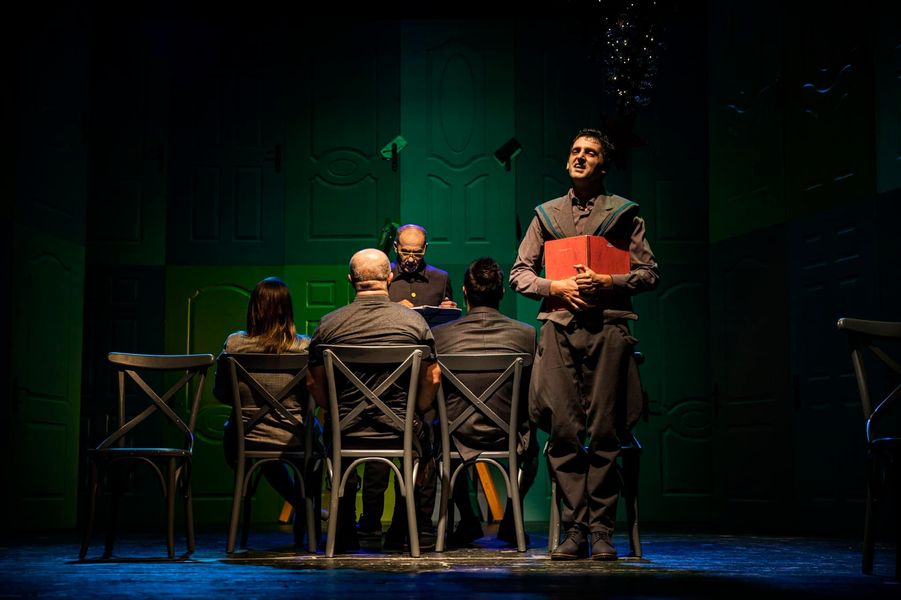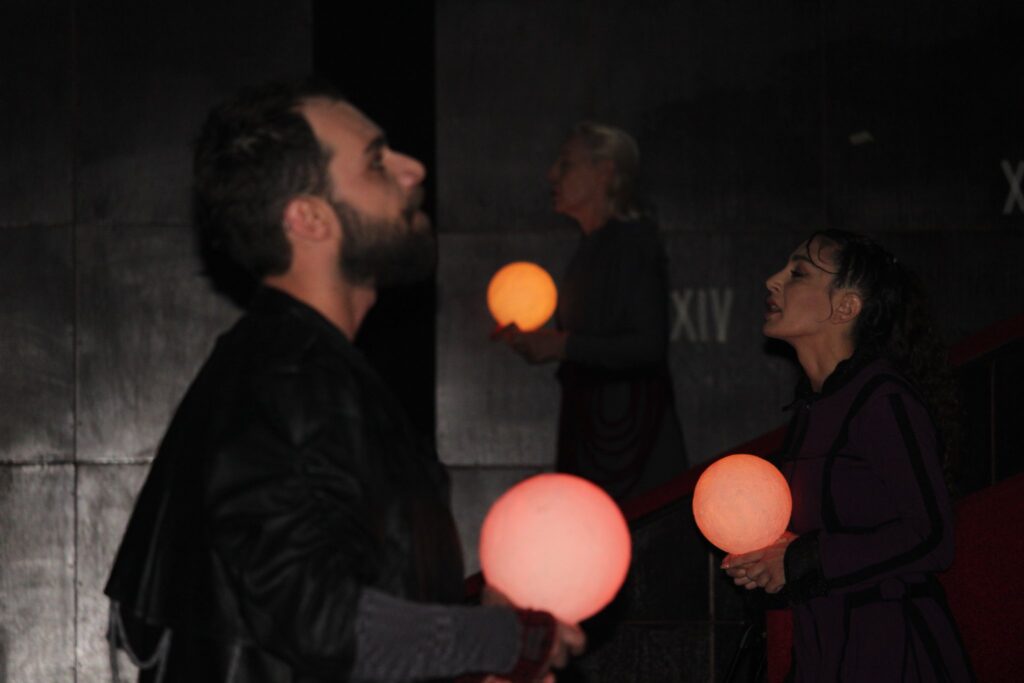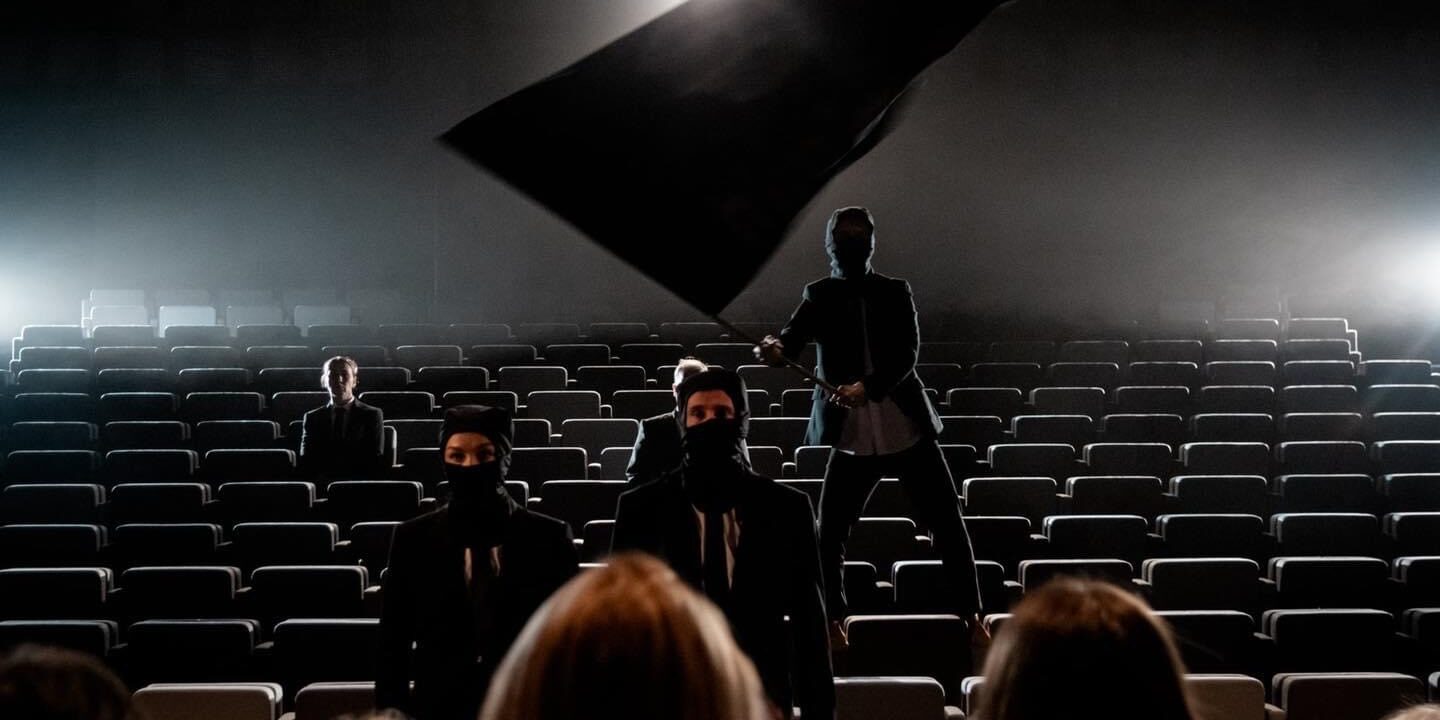How difficult is it for regional theaters in Kosovo to produce work? Fatlinda Daku spoke to three directors of artistic institutions outside Prishtina about the challenges they face.
Theater needs the correct conditions to flourish. It needs vision, but also financial resources. The National Theater of Kosovo, based in Prishtina, is the biggest theatre institution in the country. Legally it must produce at least five premieres a year. The work of national public theaters is backed by the Ministry, while the funding for the city theaters is provided by the respective municipalities. Kosovo has eight local theaters in the cities of Prizren, Ferizaj, Gjakovë, Gjilan, Mitrovicë, Pejë, Podujevë and Prishtina.
For Erson Zymberi, the artistic director of the city theater of Gjilan, one of the most difficult and absurd things about the laws and bureaucracy in the country is the contradictory nature of the laws that regulate different issues about artists’ payments or payments related to the normal functioning of a cultural institution.
The City Theater of Gjilan was founded in 1944. The first show was the comedy Brother of interest by the author Kristo Floqi. The theater usually produces 4-5 premieres during the year and shows over 100 reprises and other guest performances as part of the monthly repertoire. However, these performances are accompanied by other difficulties, one of them being financial support.
“The support of theaters across the country is very small,” says Zymberi. “This directly affects the production quality of the shows. My remark has to do with the allocation of funds for the theater. The respective local (municipalities) and central (Ministry of Culture) institutions usually share the budget equally for all the public theaters of the cities, regardless of the work and successes they have shown during the previous year. So, there is no evaluation instrument and this, instead of stimulating the incentive for development, creates parasitic cultural theaters and institutions. I am aware that MKRS has recently been working on the drafting of a culture law, which aims to regulate these and many other things. I hope that this cultural reform happens as soon as possible.”
One of the best ways of promoting work is touring performances to different theaters, either locally, nationally, or internationally. Zymberi explains that this also presents a challenge because of complex legal procedures and several times as a result, despite the desire for a national tour, certain performances have not been reprised. The City Theater of Gjilan created a “Mobile Theater” project a few years ago, which was dedicated to touring their shows. The project was supported by the “Culture for Change” program from EU Kosovo, the Goethe Institute and the Multimedia Center. After this project, they have tried to make the same idea possible within the theater budget, but, in addition to having financial costs, there are also difficult and complicated legal procedures and often despite the desire for a local tour, these procedures prevented them from going ahead, not the lack of budget.
“More should be done to promote the work of local theaters,” says Zymberi. “Cultural institutions should be treated beyond individual interests and of course, our capacities should be developed through organisations, debates, discussions, and networking with European and world theaters.”

Memorandum – Theatre of Ferizaj
A similar situation exists in the city of Ferizaj. Besim Ugzmajli, the Artistic Director of the Adriana Theater, says that theaters and culture in general in Kosovo have so many problems that the main energy of creators is spent dealing with these problems.
The theater in Ferizaj started in 1941 and was officially formed in 1943. It was originally named “Vëllezërit Frashëri” and from 1999 it has been called “Adriana Abdullahu” – after the actress from Ferizaj who was killed in 1999 by Serbian forces in Prishtina.
“One of the most frequent problems is related to finances,” says Ugzmajli, “and budgetary issues often determine the aesthetic and artistic quality [of the work]. Therefore, almost every project that is realised in Ferizaj is a derivative of a maximum budget reduction in its realisation. Despite this fact, we have managed to create beautiful and artistically accomplished projects with our collaborations with different directors and artists, but also with the maximum commitment of the team of actors and the creative and technical staff of the Adriana Theatre.”
However, according to Ugzmajli, these are not the main problems facing theaters in Kosovo. “The main problem is the mindset,” he says, “and logic of the tribe in cultural institutions in general in Kosovo. Every decision is personal and leadership positions in institutions are quite formal, personal relationships are constantly confused with professional and hierarchical ones. Everything is interpreted in an often conspiratorial and ridiculous way, and the attempt to change this tribal mentality only deepens it because the provincial terrain is an oasis of flourishing mediocrity. You cannot fight with the authorities for better conditions, a higher budget, and higher artistic standards, while the community itself consumes you with completely trivial things.”
For the Adriana Theater, the possibilities are not great to promote their work. According to Ugzmajli, “greater cooperation between theaters is needed. The activation of theater associations in greater collaborations between theaters, the exchange of actors and other artists between theaters, the organization of joint events of theaters in the country and possible international collaborations, and a significant increase in the budget for the representation of the Adriana Theater in spaces other theatrical ones.”
 The Gjakova Theater “Hadi Shehu”, which until the 1970s was an amateur theater until it became as a local theater with a permanent troupe and a budget assigned by the relevant Ministry, is also going through some of the same difficulties. Edi Kastrati, General Director of the Theater of the city of Gjakova, says that the Theater of Gjakova has been neglected for a long time by the Ministry of Youth, Culture, and Sports.
The Gjakova Theater “Hadi Shehu”, which until the 1970s was an amateur theater until it became as a local theater with a permanent troupe and a budget assigned by the relevant Ministry, is also going through some of the same difficulties. Edi Kastrati, General Director of the Theater of the city of Gjakova, says that the Theater of Gjakova has been neglected for a long time by the Ministry of Youth, Culture, and Sports.
“The Gjakova Theater “Hadi Shehu” has been only a name and an object for a long time. There was no technical and artistic staff.” he explains. The theater still does not have a bank account. There are many financial difficulties, but regardless of all the difficulties, we are constantly trying to create shows of the highest quality.’‘
According to Kastrati, the city of Gjakova has a very rich theatrical history, the citizens of Gjakova know and love the theater, but financial difficulties are the main reason why they cannot create more shows. Not enough funding is also one of the reasons why the Gjakova Theater finds it difficult to send theatrical performances to countries outside Kosovo, especially when it is requested that the theater itself cover the costs of travel and accommodation.
“The same problem is with the [touring] of the plays produced by Gjakova Theater, due to financial impossibility, we often cannot send plays to international festivals and we cannot promote our work on an international stages”
The three directors almost unanimously agree that greater investment in art from the respective institutions is needed, and more dignified treatment of this genre of art, because the passion and desire to create art have never been lacking in the local theaters of Kosovo.
Further reading: Kosovo Theatre Showcase 2021 – power play, puppetry and cultural mash-ups
Fatlinda Daku is a human rights activist who is currently working as a researcher and freelance journalist. She studied Political Science at the University of Prishtina and has working experience in the civil society sector.








